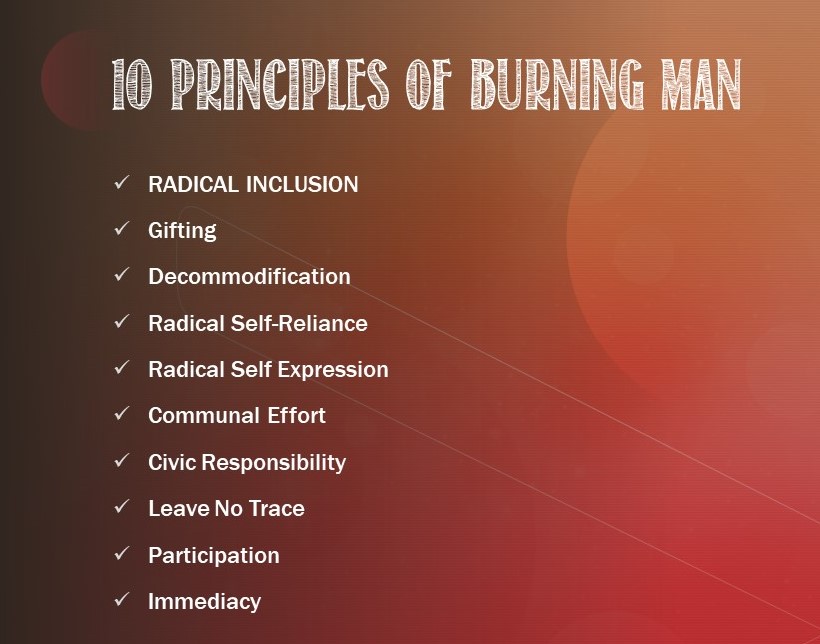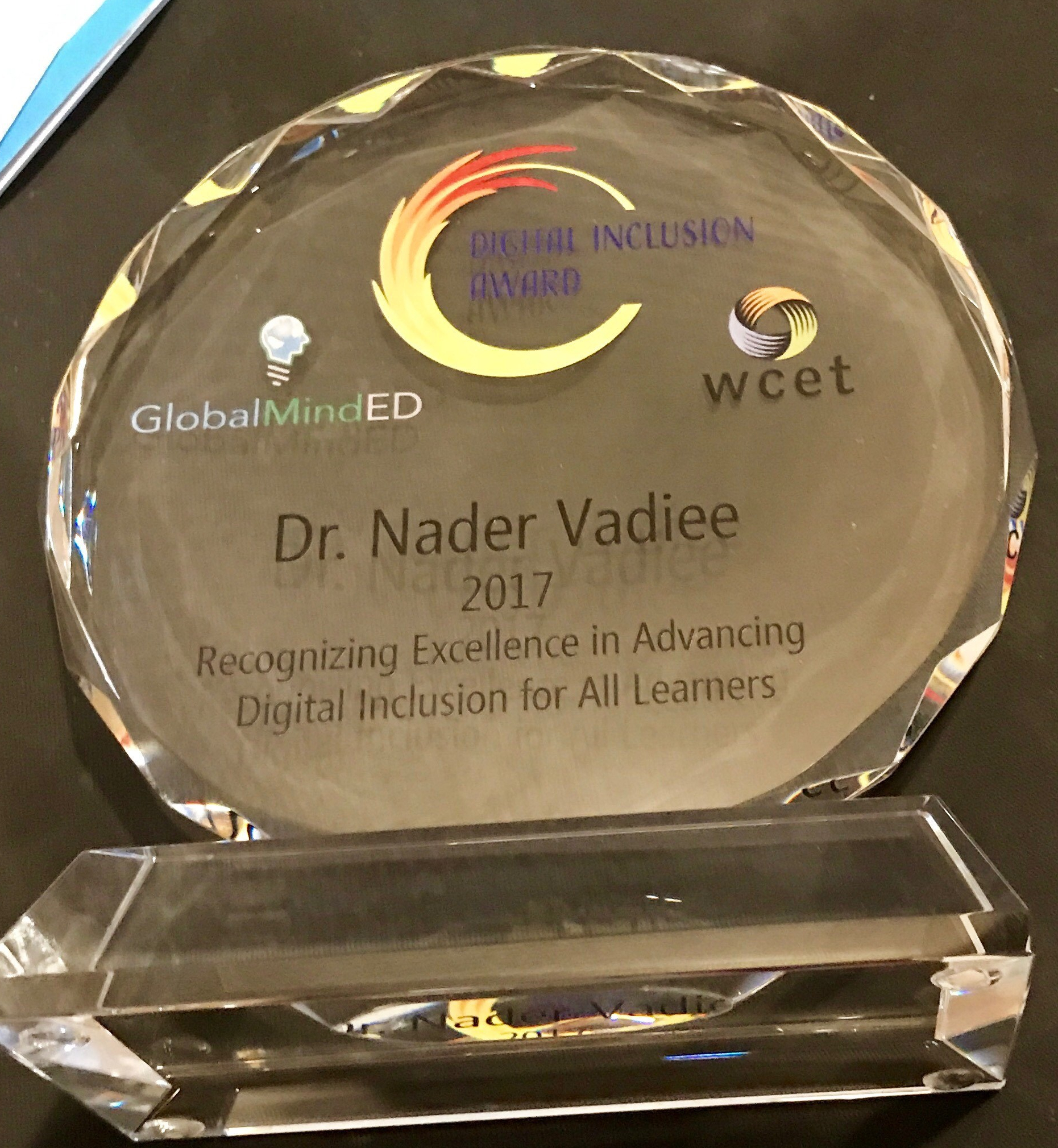The Power of Digital Inclusion
Published by: WCET | 2/15/2018
Tags: Digital Divide, Innovation, Leadership, Professional Development, Student Success, WCET, WCET Awards
Published by: WCET | 2/15/2018
Tags: Digital Divide, Innovation, Leadership, Professional Development, Student Success, WCET, WCET Awards
In October we opened the call for nominations for this year’s Digital Inclusion Award. The Digital Inclusion Award, co-sponsored by WCET and GlobalMindED, was first awarded last year. Today, WCET Frontiers is happy to welcome Mike Abbiatti, Executive Director of WCET and the WICHE Vice President for Educational Technologies, to discuss the inspiration for the Digital Inclusion Award and the submission process for the award.
Technology has the power to change lives. We’re here to honor those who help learners harness that power. Nominations for this year’s award are open until April 17th, 2018. Please nominate an individual (or even yourself!) for this award today. Please contact me at ldowns@wiche.edu if you have any questions on this or any of our other WCET Awards.
Thank you Mike for today’s post!
Enjoy the read and enjoy your day,
~Lindsey Downs, WCET
One of most elusive of all higher education goals is true inclusion. If you look up definitions of inclusion, you will find many, many definitions and contextual frameworks for assuring that everyone is offered the opportunities afforded by the pursuit of educational experiences. My favorite definition is that inclusion means cognitive diversity.
Creating a more diverse and inclusive community of learners is one of the benefits of technology. When considering this concept, I am reminded of the Radical Inclusion as practiced by my fellow Burners (individuals who attend the Burning Man Festival in Nevada each summer).

Radical Inclusion stipulates that anyone can attend and enjoy the unique event without regard to any of the commonly held biases designed to exclude people from events, activities, or opportunities. When I thought about funding a commonality that brings Burners together each year to endure a desert lifestyle, it was clear that the Burning Man Ten Philosophical Principles served to create the community (albeit a temporary one) that thrives on a common set of beliefs and tools. So, how could I relate this epiphany to our First Generation, undeserved, or otherwise disenfranchised learner populations? Well, we need to create a common set of beliefs and tools with which to build a society. These common beliefs can be structured around the development of a Digital society and technologies that empower and enable the learners to build and sustain the world they seek to enjoy. Thus, the term DIGITAL INCLUSION came to mind.
The natural next step was to develop a process through which we could identify, and reward individuals, programs, and organizations who have pioneered the positive uses of technology in such a way that Digital Inclusion was clearly demonstrated. Hence the WCET and GlobalMindED Digital Inclusion Award was born.  Our partners at GlobalMindED do a wonderful job of aligning worldwide support for students of all ages, ethnicity, socioeconomic level, and personal backgrounds as they seek access to educational opportunities and, therefore, economic opportunities.
Our partners at GlobalMindED do a wonderful job of aligning worldwide support for students of all ages, ethnicity, socioeconomic level, and personal backgrounds as they seek access to educational opportunities and, therefore, economic opportunities.
Digital Inclusion has nothing to do with infrastructure or devices, but everything to do with what learners actually DO with the infrastructure or devices. The Digital Inclusion Award is unique in the emphasis on positive outcomes related to the use of technology and not simply attempting to provide funding for students to purchase technology or gain access to high speed Internet services. People of all ages are investing in personal technology at an ever-increasing rate. The time has come to recognize excellence in the use of the digital tools. The Digital Inclusion Award was created and was launched in 2017, and the application process is described below:
Digital Inclusion is about leveraging “mindware,” not hardware/software;
Digital Inclusion is one component of a larger communications ecosystem, not a standalone concept; Digital Inclusion should be the overall goal of technological evolution.
A five (5) member selection committee will use the following requirements to select the winner of the Digital Inclusion award. Each candidate will be evaluated on a 10pt scale (with 1 being the lowest and 10 being the highest). Candidates should also keep the Digital Inclusion Principles listed above in mind when submitting their application.
The submission…
Encourages collaborative use of digital resources in specific activities.
Support for the Digital Inclusion Award has been verbalized by many leaders in the academic community.
“It’s critical that we close higher education equity gaps to ensure our future workforce and civic success. Providing accessible pathways is not only the right thing to do, but the only way to close those gaps,” says Joe Garcia, president of the Western Interstate Commission for Higher Education (WICHE), WCET’s parent organization. “Fortunately, some of our best scholars and practitioners are making this possible through technology and innovation. Our association with the Digital Inclusion Award is highly aligned with WICHE’s goal of increasing higher education access and affordability for all, and I’m thrilled that we can honor and champion this work.”

From Dr. Nader Vadiee, inaugural winner of Digital Inclusion Award, said the following about Digital Inclusion:
“I have bad news and good news. The bad news is that the millennial generation is going to face daunting challenges and will encounter complex problems to solve. These complex problems include the global environment, energy resources, economy, cultural, conflicts, health, etc. The good news is that they will be equipped with more powerful tools in their toolbox to face these challenges. They will understand, measure, represent, and model, with high resolution and precision, and find surgical solutions to the problems. Their tools include innovative digital and computational tools, VR, AR, and big data technologies.”
Andriel Dees, Director, Diversity and Inclusion at Capella University, and one of the judges of the 2017 Digital Inclusion Awards spoke to me about the importance of this award in bringing awareness to digital inclusion, saying that “The digital inclusion award is an important statement about taking technology into communities that have not had access and opportunity to thrive and greatly enhance our STEM fields.”
Finally, Carol Carter, Founder & Executive Director of GlobalMindED, which co-created the Digital Inclusion Award with WCET, summarized digital inclusion and the digital inclusion award perfectly when she said that… “The Digital Inclusion Award represents the heart of the GlobalMindED movement in that it recognizes the courage, the innovation and the generous leadership needed to close the equity gap through technology solutions that put students and graduates first. In the age of technology, those students who are empowered to self-direct, self-discover, self-initiate, and collaborate with others will be able to create work for themselves and others, add value to any situation, and solve the world’s most challenging problems. GlobalMindED is honored to partner with WCET to recognize those individuals who are setting this important standard for the impact and effectiveness of technology which can move the levers of access through empowering the humans to contribute at the highest level personally and professionally.”
WCET is looking forward to celebrating this year’s Digital Inclusion Award winner at the 2018 GlobalMindED conference in June. Join us for this outstanding conference!
We all need to consider RADICAL INCLUSION as we set out to create, operate, and scale educational opportunities for an ever-increasing population of learners. Successful Learning, like successful leadership, knows no gender, no race, no culture, no socioeconomic strata, and is intensely personal. There is no “one size fits all.” Radical Inclusion is a critical component of success in our complex society.

Mike Abbiatti
Executive Director
WCET – WICHE Cooperative for Educational Technologies
